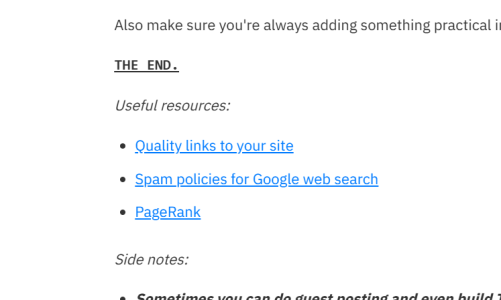Gabriele
Newbie
I'm seeing a disturbing pattern with people who rely on black-hat tactics.
It's not just about the risk of penalties anymore, the real damage is psychological.
When you constantly look for shortcuts (PBNs, link farms, etc.), you're literally training your brain to avoid hard challenges. Each hack makes you need bigger hacks. Eventually, you can't solve real problems anymore.
Think about it, every time shit hits the fan (algorithm update, manual penalty, competitor outranks you), what do black-hat SEOs do? They search the next trick instead of building something sustainable.
Meanwhile, the people building real brands are getting stronger at:
I went deeper into this here: https://lbllama.com/blog/blackhat-training-failure
Curious what others think. Are we seeing an entire generation of SEOs who literally can't build anything real because they've been conditioned to take shortcuts?
It's not just about the risk of penalties anymore, the real damage is psychological.
When you constantly look for shortcuts (PBNs, link farms, etc.), you're literally training your brain to avoid hard challenges. Each hack makes you need bigger hacks. Eventually, you can't solve real problems anymore.
Think about it, every time shit hits the fan (algorithm update, manual penalty, competitor outranks you), what do black-hat SEOs do? They search the next trick instead of building something sustainable.
Meanwhile, the people building real brands are getting stronger at:
- Creating content worth linking to
- Building genuine relationships
- Understanding their audience
- Solving actual business problems
I went deeper into this here: https://lbllama.com/blog/blackhat-training-failure
Curious what others think. Are we seeing an entire generation of SEOs who literally can't build anything real because they've been conditioned to take shortcuts?

